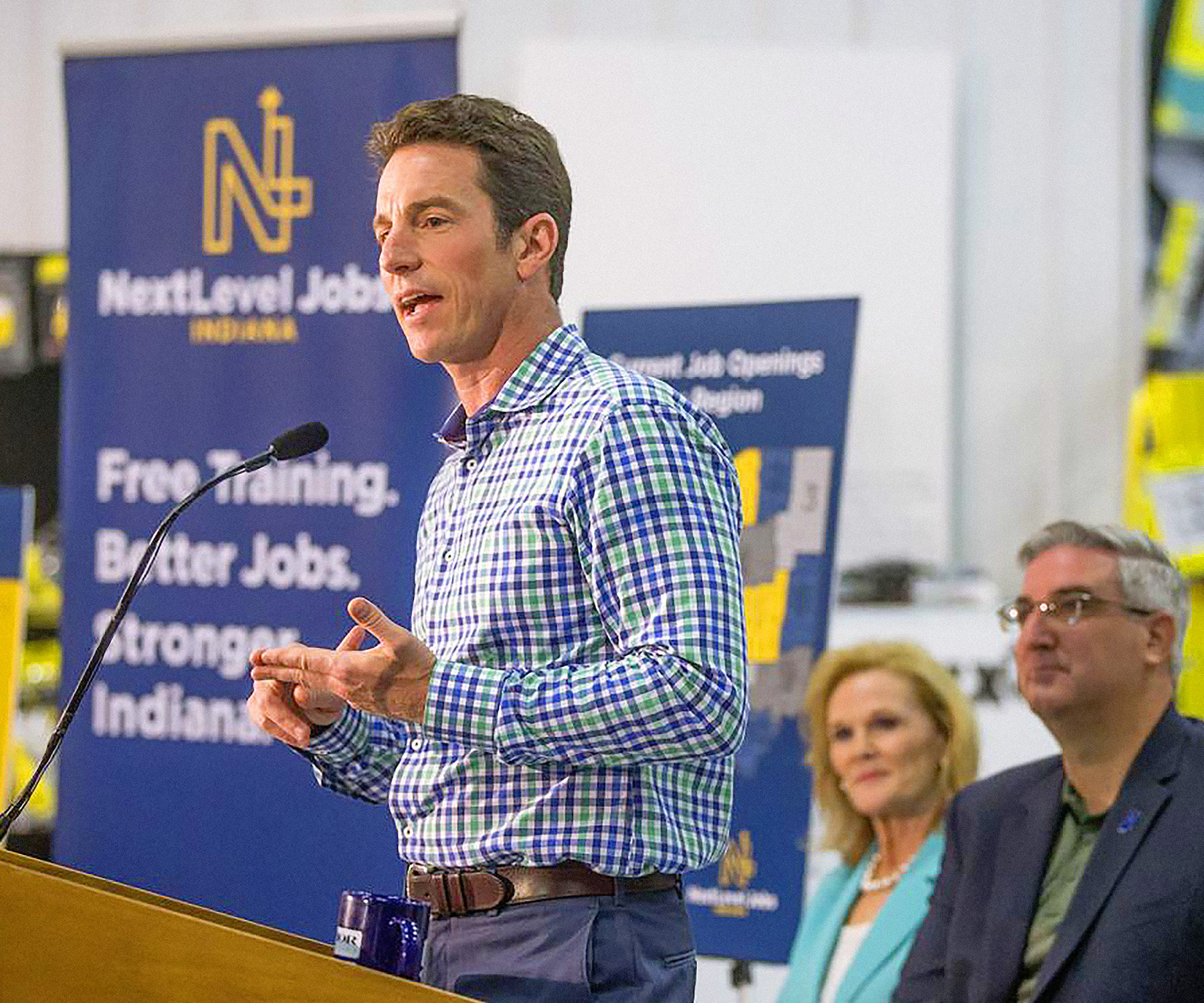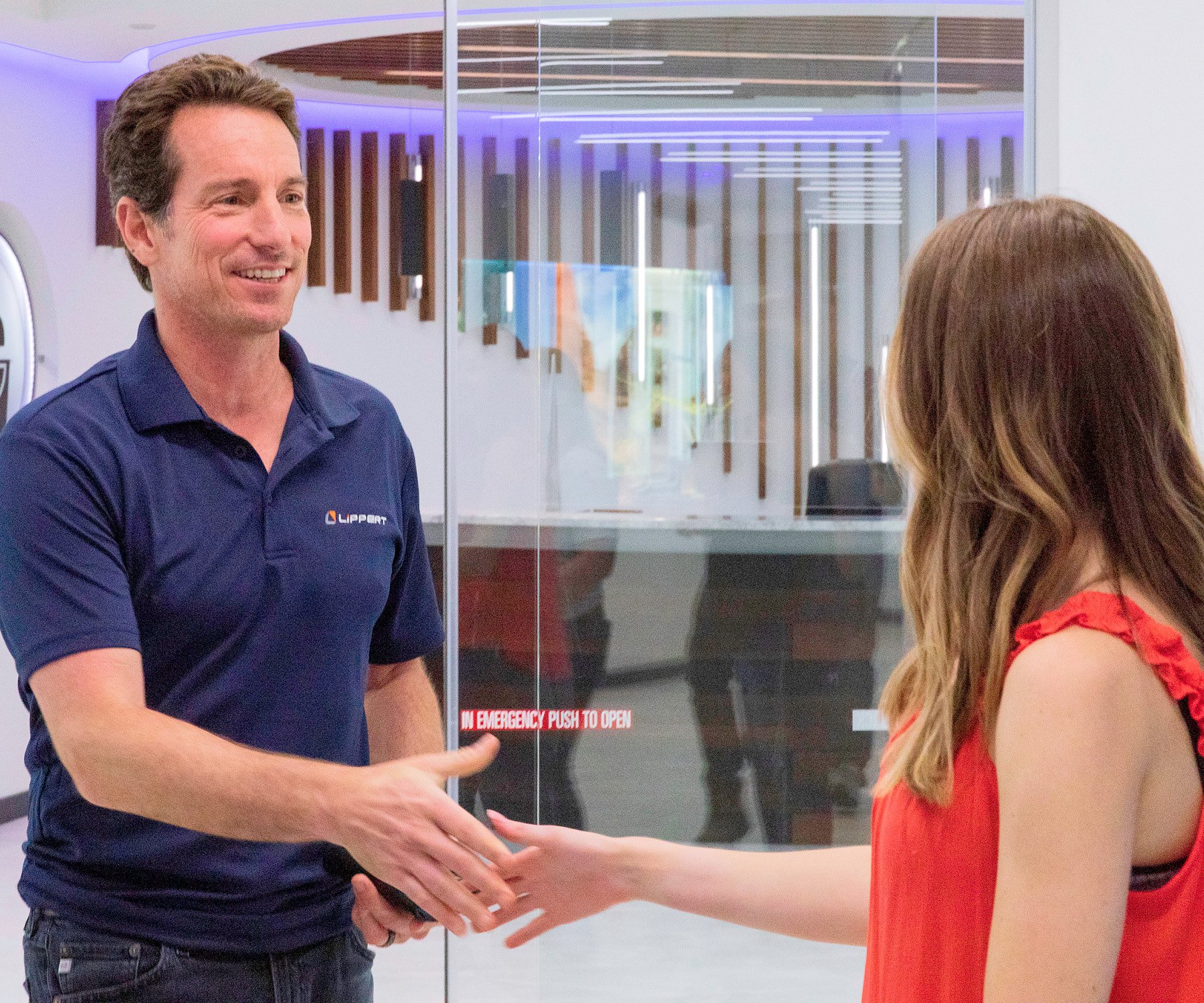Early in his career as an executive, Jason Lippert focused on growth above all else, turning the eponymous firm founded by his grandfather Larry Lippert into a world leader in manufacturing systems and accessories for all things outdoors.

“I was addicted to growth, addicted to building great teams to handle a lot of the growth,” Lippert tells The CEO Magazine.
The company expanded rapidly – after starting out in 1956 manufacturing metal roofs for mobile homes – building on its specialty in producing chassis for recreational vehicles to developing and assembling everything from electronics to furniture to glass processing.
“There’s not a lot of things that we don’t do,” Lippert says.

But the President and CEO of Lippert had an epiphany early in the last decade, realizing that growth was unsustainable unless supported by a constructive company culture.
“The last 10 or 12 years has really been around pouring into our people and making our teams as good as they can be. Really building a great culture and one that can help be a competitive advantage for the business versus just kind of saying, ‘Hey, we do culture well’,” Lippert says.
Lippert’s focus on innovation and culture has fueled impressive growth for publicly traded Lippert, which specializes in components for RVs, watercraft and trucks.
“Culture and leadership development and developing leaders around the business is really what makes us better than our competitors. That’s really what drives me these days.”

Culture and leadership development and developing leaders around the business is really what makes us better than our competitors.
Booming business
It also helped Lippert through the COVID-19 pandemic, which provided an unexpected boom for its RV components business as people rediscovered the great outdoors.
“Our problem was trying to figure out how to ramp up the business and keep our customers supplied because the demand was just off the charts,” Lippert recalls. “We had record years in 2021 and 2022. We grew a billion dollars in 2021, we grew another billion or so in 2022.”
To be sure, the pandemic presented unprecedented challenges. Supply chains seized up, forcing Lippert to seek out additional suppliers. The pandemic also caused labor shortages, prompting the company to hire 3,000 employees in both 2021 and 2022.
“We were happy to have all the extra business,” Lippert says, explaining it provided revenue for acquisitions. “But the teams, we’ve never been pulled more and more directions at one time than over the last couple of years.”
CEOs often speak in platitudes of the importance of culture. But few make it a priority, according to Lippert, while even fewer provide the necessary resources.
He suggests companies start with a single employee focused on culture.
“When we added the first person, it started a chain of events. It just created an unbelievable culture that we have here, and we still have a long way to go,” he explains.
Improving the products
Lippert has prioritized innovation as a part of its corporate culture – with the company’s components revolutionizing the RV industry. The company employs more than 200 people working on R&D and innovation.
“Employees always ask: ‘How do we make our products more intelligent? How do we add some smart technology to the products that we have?’” he explains.
The company also seeks customer input. Rather than relying on customers contacting its call centers, Lippert became proactive. It tasked sales staff with seeking feedback. It also recruited ambassadors, who regularly visit RV parks and campgrounds, querying customers on how to elevate their RV experiences.
“I can’t tell you how many great ideas we’ve got over the last three years,” Lippert says.

Looking at all sorts of things with a common goal of, ‘Hey look, how do we operate in a more sustainable fashion?
Lippert’s commitment to innovation includes an emphasis on sustainability, and the company is developing metrics. “Looking at all sorts of things with a common goal of, ‘Hey look, how do we operate in a more sustainable fashion?’” he says.
Focus on culture
But a big part of achieving sustainability rests in building the right corporate culture.
“Part of it is hiring the resources. The second piece is educating people,” he says.
“But if there’s no focus on culture and leadership in business, what happens? Turnover,” he says. “Well, what I’ve found over 30 years of being in business is it’s really hard to get a hundred people, or 15,000 people like we do, rowing in the same direction.”

If there’s no focus on culture and leadership in business, what happens? Turnover.
Turnover at Lippert runs at around 30 percent, according to the President & CEO – a major achievement in an economy with low unemployment.
“They’re waking up in the morning and saying, ‘Hey look, I’m going to contribute today. I’m going to contribute big. Where can I add more value?’ They’re thinking about the long term,” Lippert says of his employees. “They say things like: ‘I’m going to retire here’.”



